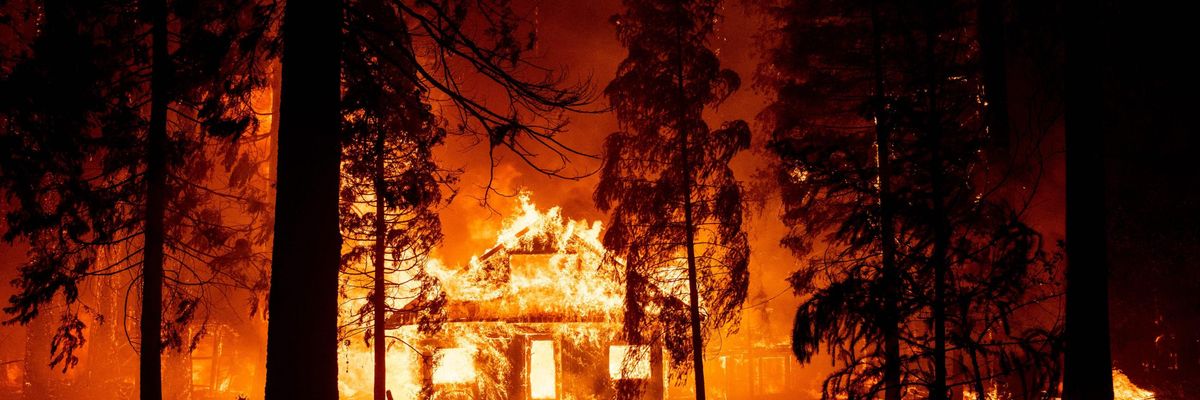The United Nations warned Friday that the planet is barreling toward 2.7degC of warming by the end of the century, a nightmare scenario that can be averted only if policymakers take immediate and sweeping action to slash greenhouse gas emissions.
Even if the 191 parties to the Paris climate accord meet their current commitments, global greenhouse gas emissions will still rise 16% by 2030 compared to 2010 levels, according to a new report published by the U.N. Framework Convention on Climate Change (UNFCCC).
"Failure to meet this goal will be measured in the massive loss of lives and livelihoods."
The goal of the 2015 Paris agreement is to limit global warming to below 2degC--and preferably to 1.5degC--above pre-industrial levels. An analysis released earlier this week found that the climate targets and actions of just one country--The Gambia--are in line with the critical 1.5deg goal.
"This is what betrayal looks like," Swedish climate activist Greta Thunberg tweeted in response to the latest U.N. findings. "Whatever our so-called 'leaders' are doing, they are doing it wrong."
Patricia Espinosa, executive secretary of U.N. Climate Change, said in a statement that the international community must "peak emissions as soon as possible before 2030 and support developing countries in building up climate resilience."
"The 16% increase is a huge cause of concern," said Espinosa. "It is in sharp contrast with the calls by science for rapid, sustained, and large-scale emission reductions to prevent the most severe climate consequences and suffering, especially of the most vulnerable, throughout the world."
The U.N. analysis came as U.S. President Joe Biden met with world leaders and announced that the United States is partnering with the European Union in an effort to cut methane emissions--a powerful driver of global warming--by nearly 30% by the end of the decade.
In its landmark report last month, the Intergovernmental Panel on Climate Change (IPCC) emphasized that a "strong, rapid, and sustained" reduction in methane emissions is necessary to prevent the worst of the planetary crisis.
The IPCC also estimated that keeping global warming to 1.5degC above pre-industrial levels would require a 45% reduction in carbon dioxide emissions by 2030--a mark that the international community is currently on track to miss badly, according to the new U.N. report.
Antonio Guterres, the secretary-general of the U.N., said in a statement Friday that 2.7degC of planetary heating would be "catastrophic" and that world leaders are "rapidly running out of time" to act.
"This is breaking the promise made six years ago to pursue the 1.5degC goal of the Paris agreement," said Guterres. "Failure to meet this goal will be measured in the massive loss of lives and livelihoods."




